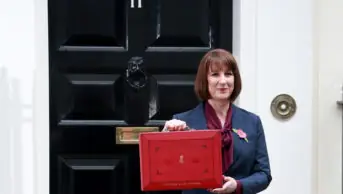
Shutterstock.com
Labour Party proposals to nationalise hospital pharmacy services have been taken off the table, the shadow health minister responsible for pharmacy has said.
This comes after former shadow chancellor John McDonnell told LBC Radio in November 2019 that the Labour Party had plans to move the provision of pharmacy services “in-house”.
The Pharmaceutical Journal later clarified that the plans concerned bringing hospital pharmacies run by private companies back into NHS ownership.
However, shadow pharmacy minister Alex Norris told The Pharmaceutical Journal on 24 March 2021 that this was “not in current plans”.
“The key for us now is to respond to the NHS white paper in the terms that are set by the government, so that is what our focus is,” he said.
Speaking to The Pharmaceutical Journal following a parliamentary debate on community pharmacy funding on 11 March 2021, Norris said the current community pharmacy contracting model in England was “cross-financed by other things, [and] that’s not sustainable”.
He said a revised funding model under a Labour government would look “at the entirety of operations in a pharmacy”.
“What are the things that we don’t want people to go into walk-in centres or A&E to do, that could be done on the high street?” he explained. “That’s what pharmacists tell us they want to be doing, but that needs to be reflected in the contract rather than just done on goodwill.”
“So rather than take — as we have in this country for the last decade — a ‘sweat the asset’ approach to public services, we need to have an investment approach,” he said.
He added that reducing the dispensing fee was “a sign of the wrongheaded approach” from the government towards community pharmacy.
“That is one aspect — a very important aspect of the nature of community pharmacy — but to look at that one thing … in isolation, I think is a mistake.”
As part of the Community Pharmacy Contractual Framework for 2019/2020 to 2023/2024, the government said it plans to reduce the dispensing fee by an amount that is still to be agreed over the five-year settlement.
Norris added that the government’s lack of funding for pharmacy’s COVID-19 costs shows “a failure of leadership”.
Although the prime minister promised additional funding for community pharmacy, Norris said: “It doesn’t mean it’s going to happen.”
Government’s response to pharmacy closures is ‘explaining away failure’, says Norris
Alex Norris told The Pharmaceutical Journal that he was “worried about the outlook” for community pharmacies.
“I think the Department [of Health and Social Care] has a view that there are too many community pharmacies and therefore [the prime minister is] kind of letting the market deal with that,” he said.
An investigation by The Pharmaceutical Journal in January 2021 revealed that the number of closures has spiked during the pandemic, with a net total of 202 pharmacies closing in 2020, compared with 123 net closures in 2019, 122 in 2018 and just 25 in 2017.
Deprived areas were found to be hit the hardest, with 81 of those closures occurring in the 20% most deprived areas, while 19 closed in the 20% most affluent areas in 2020.
Norris said pharmacy minister Jo Churchill’s response during the 11 March 2021 parliamentary debate — that there are more closures “where they are clustered” — is “explaining away failure”.
“The problem with the current department’s analysis is that they paint themselves as passive observers,” he said.
“But ultimately they have a contractual relationship with pharmacies, and if their partners are going out of business, and they are the major source of funding, that asks a very profound question.”
READ MORE: PJ view: Pharmacies should not have to beg to have their COVID-19 costs reimbursed


